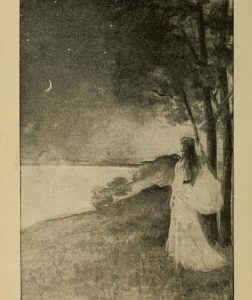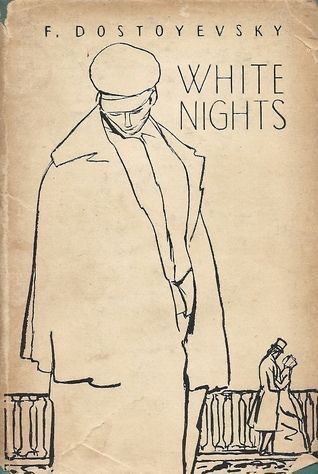Human beings are defined by their power of imagination. It is one of the pivotal things that make them different even from each other. The ability to imagine oneself in different dimensions, scenarios, and situations is something truly unique and limited to the human species only. But Dostoyevsky has a different take on it that he has described in his novella White Nights.
The Basic Gist of the Story:
We come across our protagonist—whose name we do not know in the whole story—who is quite a peculiar being and considers himself a dreamer. A romantic dreamer, in fact. The protagonist has lived a very dull life and spends most of his time alone, dreaming. He dreams of the time when he meets someone and his life will have some color and meaning. With the habit of wandering the streets of his town, he comes across Nastenka, the love interest of our protagonist. Nastenka is grieving over the fact that her lover has not come back for her, and that sadness captivates our protagonist. He is automatically drawn to her and starts to have very deep conversations with her. The protagonist instantly starts to dream about his life with her and imagines many different ways in which she would love him and even reciprocate that love, even though Nastenka had made it abundantly clear that there could be nothing more between them than a friendship. Dostoyevsky even boldly wrote a statement of Nastenka in which she explicitly warns the protagonist not to fall in love with her. But even so, the protagonist has no reign over his imagination and keeps on dreaming of a future with her. But those dreams are soon, just after four nights, crushed when Nastenka’s lover comes back for her and she goes into the night with him, leaving our protagonist alone once again.
Now that we have a vague idea about what the story is about, we will see Dostoyevsky’s perspective on the power of imagination and even the dangers of it.

Our Imagination: A Blessing or Curse?
Human beings are nothing if not defined by their power to think of things that transcend the barriers of reality. Our imagination and the power of belief in them sometimes drive us to live in this otherwise black-and-white world. It can be safe to say that one’s ability to dream gives their life meaning and is the driving force in many of life’s pursuits. But one must not ignore the fact that too much dreaming or living in the imaginary world can take away the essence of humanness in a person. Because once the dream does not live up to the expectation, one is left with a bare scar, a rather deep one that sometimes gets etched into the soul.
Perhaps through his novella, Dostoyevsky tries to tell us how human beings have the tendency to ruin themselves through their own dreaming, a rather harmless act that is sometimes necessary. But it makes us ponder the fact that that may have been the motive all along. To show that seemingly harmless things can do so much harm to one that it is devastating to the person experiencing it. Just the fact that the protagonist does not have a name in the whole story and Nastenka’s name shows up more than 100 times depicts how much we fantasize about something and make it the center of our life, and our life is defined by one moment since then. We even forget to exist ourselves and only revolve around the object of desire. Perhaps through his short story, he gave us food for thought that has lasted for more than 200 years. That the readers are forced to think just how dangerous the human mind can be at ruining itself through its own hands.
Even Nastenka, in her place, was right because she was always in love with her former lover and was merely forcing herself to love the protagonist when he did not show up. This may also come as a thought that it was the fault of our dreamer all along for having such great but false expectations, and that whatever happened to him was the consequence of his own doing. But then again, everyone wants to be the protagonist of their story and wants the things they know they cannot have. It is a simple principle of human nature.
If the protagonist had not been so fixated on his expectations, he may have come to realize that romantic love isn’t the only thing that gives life its purpose. True, it is a great feeling, and it is a vital part of life, but we must not forget what Aristotle once said:
“The greater part of love is the loving.”
That it is the lover who can get the most out of it. Instead of going back to his gloomy life, the protagonist could have taken it as an experience and learned from it.
The Silver (White) Lining:
Perhaps that was the purpose of writing the story, to show how human beings can give one situation such importance that it drives their whole life, and when it vanishes, we do not look at its silver lining, but rather go back to our somewhat familiar previous state of mind, refusing to change. White Nights has proven how great a writer Dostoyevsky truly is, and it is undeniable that he allows the readers to truly question their stances and views on life; and in the case of this novella: the limits—or rather the limitless—imagination and its dangers. One should definitely give it a read, as it leaves us questioning for far longer than it took to read the book.
















